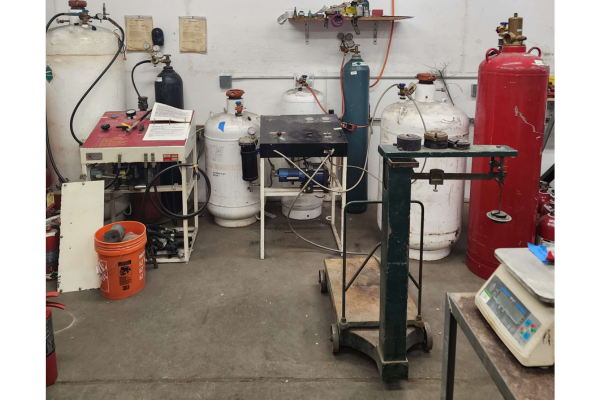In the field of fire safety, it’sn’t just about having the tools it’s about ensuring that the equipment is working flawlessly when it’s required most. Fire extinguisher maintenance is more than just routine maintenance. It’s now a requirement for any fire equipment dealer that is concerned about safety, reliability and compliance.
In the event that you manage a busy storefront or manage a client portfolio knowing the nuances and nuances of fire extinguisher inspection charging, tagging, and inspection is essential to establishing trust and long-term success within this industry.
The importance of fire Extinguisher Inspections are often ignored
Every extinguisher installed on the walls of a commercial property may appear ready but is it truly functional? The only way to know for sure is to check the fire extinguishers. The process requires more than just a glance. Certified technicians are required to check the pressure levels as well as the condition of nozzles seals, tamper indicators, expiration date, as well as general wear.

Image credit: servicedfireequipment.com
In case you miss one of these steps and you’ll leave the customer open to fire hazards, but to fines and code violations. A partnership with a service which conducts thorough inspections enables fire equipment dealers to offer customers peace of mind. They know their products comply with industry regulations and are ready for the real world.
The Reasons Why the Fire Extinguisher Charge Isn’t Optional, It’s a must
It’s clear that the discharged or partially used extinguisher is a hazard to the safety of your family. If it has been accidentally opened or used to fight small fires within the kitchen, it can only be considered safe once it has been properly recharged. This is where the importance of charging fire extinguishers becomes clear.
Recharging is the process of replacing or refilling the extinguishing chemical, repressurizing the cylinder and ensuring the internal components are undamaged. This procedure requires precision and understanding of the various types of extinguishers (dry foam, chemical CO2, etc.). It requires modern-day equipment and knowledge of various extinguisher models (dry chemical, CO2, foam, and so on.).
A lot of dealers are now outsourcing this work, which allows them to reduce costs while maintaining high-quality.
What is the role of tagging the fire extinguisher’s tag in protecting the law and customer trust?
The tag is a tiny item, but it’s an immense impact.
Fire extinguisher tagging is the documented proof that a unit has been inspected, maintained, and certified according to state and federal safety codes. The tag includes the following dates of service, technician’s ID, nature of inspection; and the date of time of next scheduled service. This tag is more than a simple document. It’s an extra layer of protection from responsibility for owners of businesses. Dealers, it’s an emblem of credibility.
Missing or incorrect tags can result in failed safety audits or fines as well as a loss of client trust. That’s why working with a company that follows accurate and legally compliant tagging practices is crucial.
A Smarter Business Model: Outsource the Service, Own the Relationship
It’s not the most efficient utilization of their time to manage an in-house maintenance department. Instead they would rather concentrate on building relationships and increasing sales. It’s for this reason that outsourcing fire extinguisher maintenance that includes inspections, recharges, and tag tags to a specialist company is becoming more popular in the U.S.
In letting go of the technical duties, dealers will be able to expand more quickly, lessen their liability, and ensure that each extinguisher they sell or lease can be used when lives and property are on the line.
Final Thoughts
Fire extinguisher maintenance is not an optional task in today’s security conscious business world. It’s an integral element of successful business. When dealers place a top prioritization on a thorough inspection, reliable recharging, and legal-compliant tagging, not only do they sell products but also offering the security, trust, and confidence. And in the fire protection industry, this is the kind of trust which never ends.

